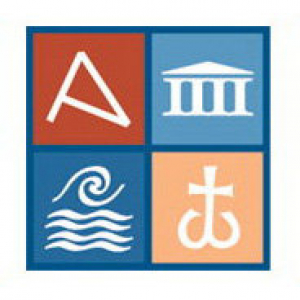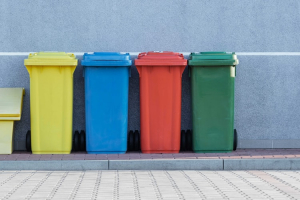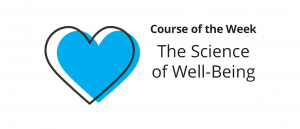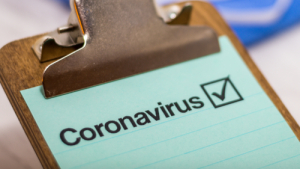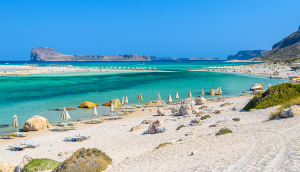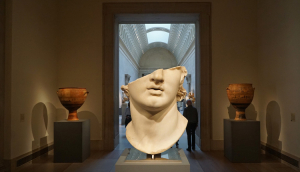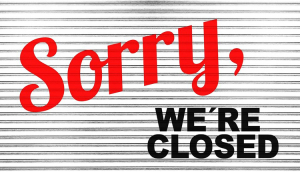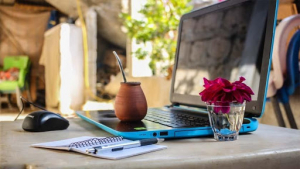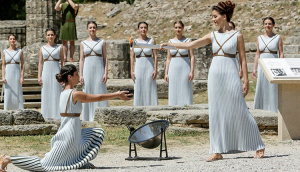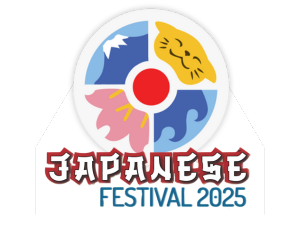LIFE & CULTURE
XpatAthens
FHW Documentaries Available Online For Free
The Foundation of the Hellenic World supports the Ministry of Digital Governance's initiative #DigitalSolidarityGR and invites us on an educational and entertaining journey through a series of free online documentaries (in Greek) and their Digital Encyclopaedia of the Hellenic World (in English), both with archaeological, historical and cultural content.
These resources provide thorough insight into Greek history covering as many aspects of Greek culture as possible. You may also like to explore "Hellenic History on the Internet" which is an educational program that has been produced by the Foundation of the Hellenic World and is available in its entirety online. "Hellenic History on the Internet" is an innovative way, regarding both its extent and method, to present Greek history to people all over the world. This significant project has been made possible by distinguished Greek historians, researchers, archaeologists, and information technology experts. It is worth mentioning that it refers to all aspects of Greek activity such as politics, military, history, literature, culture, private life, society, economy, from Prehistory to the present day. It is also accompanied by an extensive bibliography, timelines, and photographic material.
Miletus...A City in Four Dimensions
This 30-minute documentary won 1st prize at the 5th Archaeological Film Festival of Amiens in France. With the use of three-dimensional models, dramatized scenarios, and shots taken in the natural surroundings of Miletus, the ancient city has been restored to its former vigor.
Asia Minor...Echoes of Memory
"Asia Minor...Echoes of Memory" is a visual journey into Asia Minor with a series of 4 half-hour documentaries. Each documentary follows the dramatic dialogue of two voices that travel through time and space in search of their roots. As they move from city to city, they uncover the rich cultural mosaic that forms the history of Asia Minor. 3D reconstructions of monuments complement all 4 documentaries.
The Ever-burning Candle...On the Tracks of Christianity of Asia Minor
CContinuing the Asia Minor theme, this half-hour documentary looks at the history of the church in Asia Minor, from its beginnings until the early 20th century. Of particular significance is the documentary's 3D presentation of the church of the Dormition of the Virgin in Bithynia, destroyed in 1922.
Sea Routes - Cyprus
Cyprus, with its natural ports and diachronic presence of the Greek element, is the subject of the Foundation's last film production. The myths of Cyprus, its history, its natural resources, its people, and the power of the sea that surrounds it create the portrait of an island with strong traditions and its people who are famous for their tremendous inner strength.
Royal Purple Harbors
The documentary brings to life the travels of the Greeks, already from the Minoan period to Lebanon, the land of the Phoenicians, one of the most important commercial centers of the Mediterranean, and reveals the influence of Hellenic culture there.
The House Of Hermogenes
"The House of Hermogenes" is an animated 3d reconstruction of a typical house of Priene based on the research of Prof. Dr. Wolfram Hoepfner. Its subject is to demonstrate the arrangement and the functionality of a residence of the classical period. It has won an Honorable Mention in the Use of Animation category in "The Archaeology Channel International Film and Video Festival."
How To Dispose Of Garbage During COVID-19 Outbreak
As local authorities ramp up their coronavirus preparations, the Regional Governor of Attica, in collaboration with the Crisis Management Team and members of EDSNA, has issued a set of guidelines for the proper disposal of waste during the COVID-19 outbreak for the protection of citizens and workers in the waste management sector.
During this challenging time, Greece's first responders, police officers, doctors, nurses, and more are all to be commended. In this list, we should also remember garbage collectors and other sanitation workers who, despite the dangers imposed by the novel coronavirus, continue to provide their service. We should also take into account that due to the closure of schools and the introduction of "special-purpose leaves" for working parents, the sector has seen the number of employees decrease, experiencing additional pressure.
Citizens are expected to comply with the following rules:
- Put all used personal protective equipment, such as gloves, antibacterial wipes, and face masks in non-recyclable bags.
- Each bag must be hand-tied by gathering and twisting the neck of the bag and using a tie or hand knot to seal the bag properly.
- Make sure that the dustbin lid closes properly and don't place excess bags on top of the garbage bin.
- Avoid putting out large and bulky items.
- Municipalities are required to disinfect garbage bins, and citizens are advised to open the garbage bins by the step-on mechanism or using gloves.
-
Do not sort recyclable waste (plastic, paper, metal) in order to protect workers in recycling sorting centers.
-
The bags should be only 2/3 full. Also, you should place them into a second bag, tie them securely and keep them separate from other waste in the room in which you are self-isolating.
-
Use gloves while tying the bin bags and taking them out. Dispose of the gloves immediately after.
Yale's Most Popular Class Ever Available Free Online
After waves of people asked to access the course, Santos designed an iteration for the online learning platform Coursera, called The Science of Well-Being, available for free to non-Yale students. There's an optional fee of $49 (about €45) to receive a certificate of completion.
The course is a combination of positive psychology and real-life applications of behavioral science. It debunks popular notions of what makes people happy and helps students understand the habits they should build to lead more fulfilling lives. It teaches practical advice such as how to choose a career that you'll love, as well as how to distinguish satisfying pursuits from hollow ones.
Now that most of us have to stay at home with plenty of free time in our hands, we have the opportunity to get creative. Taking this online course is an excellent way to promote our mental health and arm ourselves with courage and hope.
- Misconceptions about happiness
- Why our expectations are so bad
- How we can overcome our biases
- Stuff that really makes us happy
- Putting strategies into practice
To make the class warm and inviting, it's shot in Santos' own home, with Yale students in the audience so you can see how the material lands with other people. It feels intimate, and Santos' tone is friendly and conversational.
However, just because it’s free it doesn’t mean it will be a piece of cake. While you can take the class at your own pace, you're encouraged to implement the rewiring techniques on a weekly schedule, since research has found that improving your well-being takes daily, intentional effort over long periods. Also, you will get 180 days from the time you sign up for the class to complete all of the work: quizzes, tests, and a peer-graded paper.
To join the Psychology and the Good Life course, please click HERE.
Article source: Business Insider
Tracking The Spread Of Covid-19 In Greece
If You Have Symptoms - Here's What To Do
Only complete this online survey if you have experienced any COVID-19 symptoms and allow your device to share your location. The process takes less than a minute and your responsible response can help map confirmed and presumptive cases of COVID-19 in Greece.
The tracking system was developed as part of the MSc program "Environmental, Disaster, and Crisis Management Strategies."
The Unexpected Silver Lining Of The Coronavirus Outbreak
Satellite images released by NASA and the European Space Agency show a significant reduction in nitrogen dioxide emissions in major Chinese cities between January and February while the visible cloud of toxic gas hovering over industrial areas has almost dissappeared.
In Hong Kong, air quality has also improved since the city went into partial shutdown mode as a measure to stop the spreading of the coronavirus. Key air pollutants have dropped by nearly a third, according to data released by the Hong Kong University School of Public Health, which was analyzed by the environmental organization Clean Air Network.
Similarly in Venice residents are noticing a great improvement in the city's famous canals. The usually murky waters are running clear to the extent that fish can be seen for the first time in a very long time! The lockdown in Italy has left Venice streets empty while the drop in water traffic has allowed the sediment in the canals has been able to settle.
New Tourism Campaign Urges Travelers To Stay Safe And Plan Ahead
To read this article in full, please visit: GreekReporter.com
Great Museums To (Virtually) Explore When You’re Stuck At Home
1. National Archaeological Museum of Athens
The National Archaeological Museum is the largest in Greece and one of the most important in the world. While it was initially designed to house findings from all the 19th-century excavations, it gradually took the form of the country's primary National Archaeological Museum. The Museum includes more than 11,000 exhibits, which offer visitors a panorama of ancient Greek culture from the beginning of prehistory to late antiquity.
Discover the collections of the National Archaeological Museum Here.
2. The Louvre Museum, Paris
The Louvre Museum in Paris is one of the most notable art Museums in the world; housing 35.000 works of Art in an exhibition area of 60.600 square meters. The museum's collection is divided into 8 departments: Egyptian Antiquities, Near Eastern Antiquities, Greek, Etruscan and Roman Antiquities, Islamic Art, Sculpture, Decorative Arts, Paintings, Prints and Drawings.
Click Here to visit the Louvre's exhibition rooms and galleries, online.
The Metropolitan Museum of Art showcases over 5,000 years of art from all over the world for everyone to experience and enjoy. Since its foundation in 1870, The Met has always aspired to be more than a treasury of rare and beautiful objects, but a place where art comes alive, revealing new ideas and unexpected connections across time and cultures.
5. The State Hermitage Museum, St Petersburg
The State Hermitage Museum is home to a collection of more than 3.000.000 artifacts. Founded in 1764 by Empress Catherine the Great, the museum is a beacon of culture and a treasury of significant works by artists like Renoir, Van Gogh, Leonardo da Vinci, Matisse, Kandinsky, and Picasso. Furthermore, the museum houses an extensive collection of jewelry and ancient artifacts from Greece, Rome, and Egypt.
6. The British Museum, London
The British Museum was founded in 1753 and first opened its doors in 1759. Since then, the museum has been driven by an insatiable curiosity for the world and a deep belief in objects as reliable witnesses and documents of human history. Take a tour of the Great Court and discover the ancient Rosetta Stone and Egyptian mummies.
Find hundreds of artifacts on the museum’s virtual tour Here.

Important Coronavirus Update – Food Outlets And Malls Close Nationwide
So as of March 15, all malls, and department stores, cafes, bars, and food outlets–except delivery and take away restaurants–will remain closed.
To learn more about how to stay protected or if you believe you may have been infected please CLICK HERE.
Important Notice from XpatAthens
The Rise Of Digital Nomads
Digital Nomads
Check out Spaces' flexible workspace locations to find a base for your international team!
This content has been sponsored by IWG - an XpatAthens Brand Partner.
Olympic Flame Lit In Ancient Olympia
To read this article in full, please visit: NBC Sports


